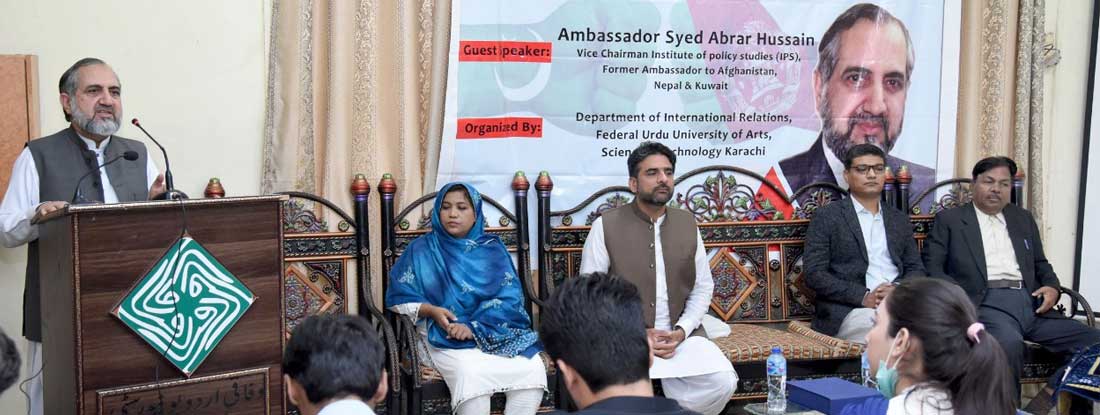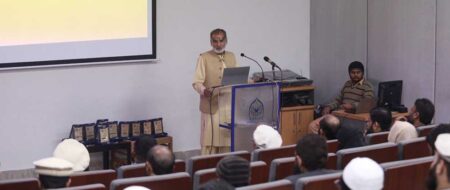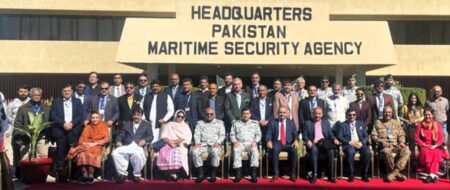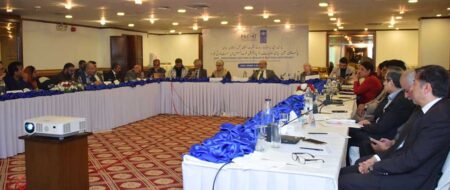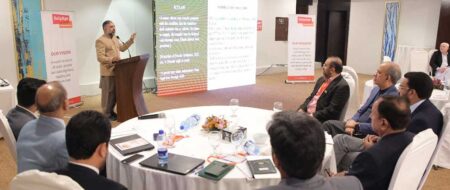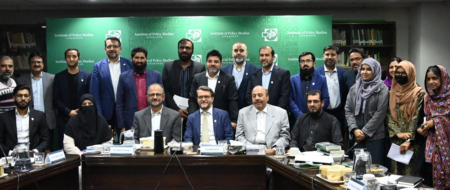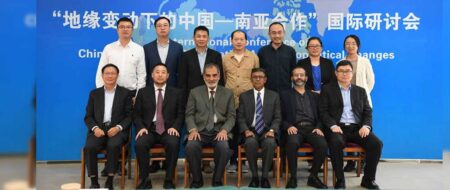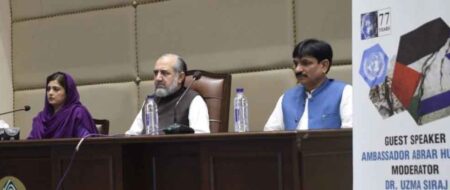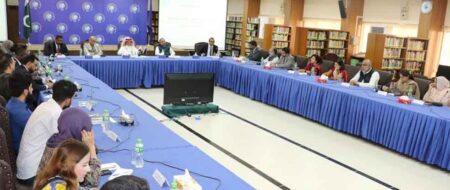‘Pak-Afghan Relations in Current Situation’
On the invitation of Federal Urdu University of Arts, Science and Technology (FUUAST)’s Department of International Relations, Vice Chairman IPS Ambassador (r) Syed Abrar Hussain delivered a talk at a seminar titled ‘Pak-Afghan Relations in Current Situation’, which was held at the University’s campus in Karachi on November 26, 2021.
The former diplomat was accompanied by Institute’s Senior Research Officer Syed Nadeem Farhat and Research Officer Usama Hameed, whereas Dr Asghar Ali Dashti, Chairman IR department, Dr Faisal Javed and Dr Waseem ud Din, along with other faculty members, welcomed the visiting IPS delegation on the University’s behalf.
Speaking about the evolving situation in Afghanistan on the occasion, Pakistan’s former ambassador to the country said that the Taliban regime in Kabul is currently facing many challenges among which the economic crisis tops all the rest. The need is now for the world to pay heed to this crisis in order to save the country from another humanitarian disaster.
Hussain was of the view that the withdrawal of foreign forces from the country was not only in favor of Afghanistan but also for the region at large. Taliban took control of the country with ease, without ensuing any civil war like in the 1990s, which is again a good omen for regional peace. Pakistan supported peace in Afghanistan and made efforts in this regard beyond its capacity, and It is still continuing to do whatever is possible to draw global attention for stability in the country. Now it is the Taliban government’s turn to ensure that the country’s border with Pakistan remains safe, secure and peaceful, and no violent elements get benefit of the ongoing chaos in Afghanistan.
Hussain also opined that the present regional scenario offers a number of opportunities for both the countries to avail and thrive upon. For instance, Pakistan remains to be the first choice for Afghan investors, he added, and by relaxing visa restrictions, it can not only attract investments but also open doors for better people-to-people contact, consequently improving bilateral relations between the two neighboring nations.


